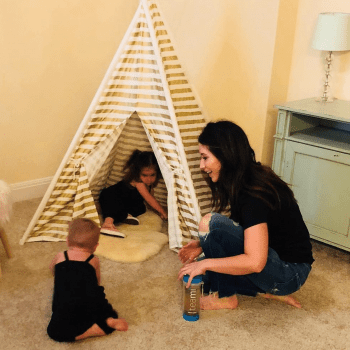As I mentioned last week, I want to show Dakota how much I appreciate him, and I’m doing it by participating in the 30 Day Kindness Challenge, based on The Kindness Challenge: Thirty Days to Improve Any Relationshipby Shaunti Feldhahn. The challenge itself is pretty simple:
1. Say nothing negative/negatively about your person—either to them or about them to somebody else. (If you must provide honest, negative feedback to or about a colleague or child for vital reasons, be constructive, helpful and encouraging, without a negative tone. i.e. “Yes, the boss was in a bad mood today. The executive committee is probably on his case. Let’s stay focused, and deliver a great report next week.”)
2. Every day (or as often as possible), find one thing positive that you can sincerely praise or affirm about your person and tell them, and tell someone else. (i.e. Tell your mother-in-law, “Thanks for being willing to watch the kids last night while we were at that meeting,” and then tell your husband the same thing. Without bringing up that she let the kids stay up way too late again.)
3. Every day (or as often as possible), do one small act of kindness or generosity for your person.
Or at least I SAY it’s pretty simple. Once you get going on it, you realize how tough some of these can be! (Want to join me? Click here!)
Dakota is the BEST husband ever — he’s always surprising me and giving me little gifts. Like recently, he showed up at my new work with flowers. Sweet! That’s why I picked him… I want to shower kindness on him. (If you join, you can pick anyone you want — from a kid, to a spouse, to a co-worker.)
Once you sign up, they send you daily reminders on how to be kind. Those have been super helpful.
Here are five tips that have helped me so far in my challenge.
1. Lend a helping hand
Shaunti suggest doing chore or task you know your “target” hates doing. Even if it’s small — like doing the dishes – it makes a big impact. “The research found that many small actions have an outsized impact; not because that specific action is unusually valuable but because it tells the other person you are valuable and valued.”










